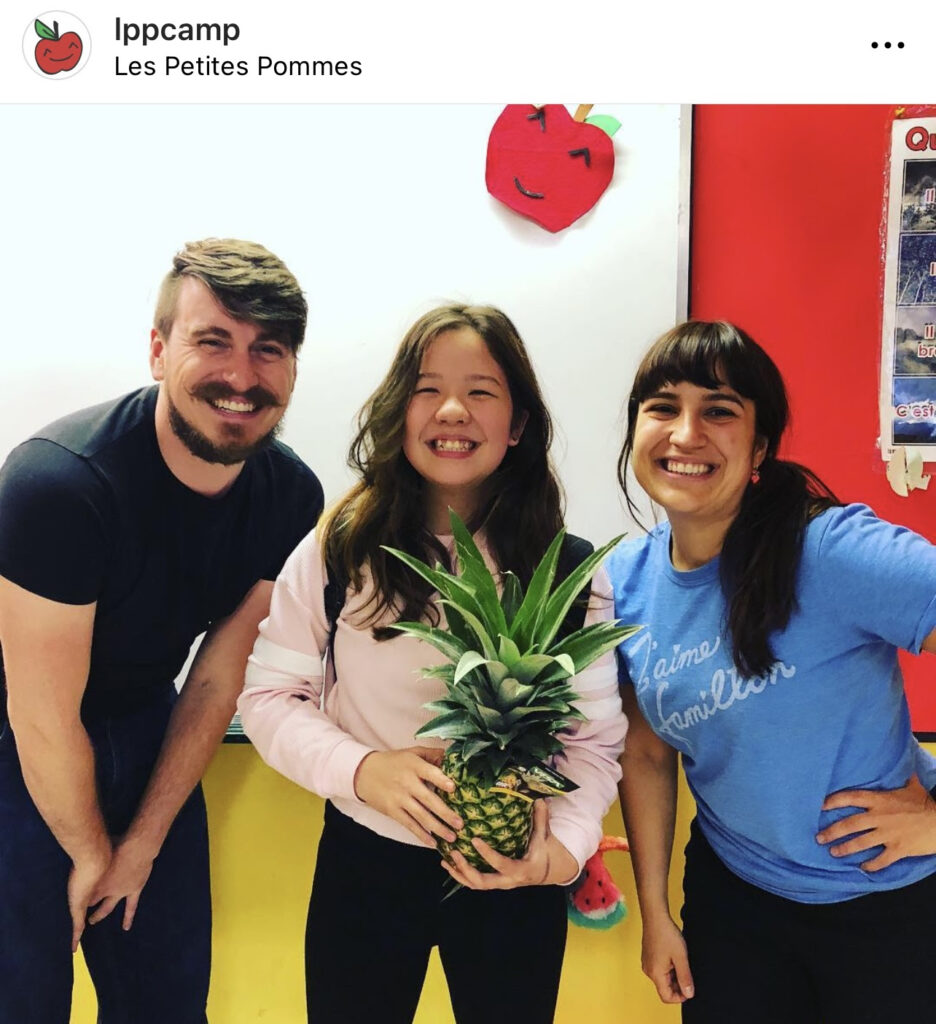At Les Petites Pommes, we love birthdays! Whenever we have a birthday at summer camp, we always celebrate by giving students a pineapple. We’ll have to revisit the origins of this tradition another time, but I bring this up because earlier this month, it was our awesome book writer Juana‘s birthday. Below she shares with us some birthday reflections related to her French journey. Enjoy!
Early French Memories To Current Principals
Earlier this month, I celebrated my 28th birthday! I found myself reflecting on my childhood memories and I was reminded of my early experiences as a French learner. I thought it might be interesting to share some of my earliest memories of learning French as a child, as well as some of the lessons I learned from those experiences.
Although I began my formal French education at the age of 18, during my time in university, my curiosity for the language had sparked long before then. I can recall my first French lessons taking place when I was just six or seven years old. At that time, I was a rather inattentive student, easily distracted by my surroundings. Despite this, my teacher persisted with patience and creativity, devising engaging activities and games, such as the catchy tune “Lundi matin, l’empereur, sa femme et le petit prince”. This song ignited my passion for French and became one of my earliest memories with the language, as I sang and danced along in class.
Despite not continuing my French studies for many years after my early lessons, they made a significant impact on me. Today, some of the same principles that guided my early learning experiences continue to influence my teaching. These principles include:
1. Fun activities allow learning to stay in our memory for longer. The human brain has the ability to unconsciously store memories of experiences that were pleasurable, thereby increasing the likelihood of long-term retention. While repetition and hard work are essential components of learning, having a positive first encounter with a subject can significantly impact one’s attitude towards it in the future.
2. Repetition can be a powerful tool for language learning. In my case, the catchy nature of the song I learned in my early French lessons allowed me to perfect my pronunciation by repeatedly singing the lyrics. Additionally, the repetition helped me quickly memorize the days of the week.
3. French is a highly musical language that emphasizes harmony and fluidity in its pronunciation. The term liaison, commonly used in French phonetics, actually derives from the musical term “ligato” in opera and classical music. By learning French, you can enhance your musical ear and appreciation for harmony. Many people find that studying French helps them to better appreciate the musicality of language, and vice versa. So, whenever possible, I try to incorporate music into my lessons!
4. Taking breaks from learning can be beneficial. Although my parents believed that learning French at a young age was the best option, I am grateful that they allowed me to take a break and return to it later in life. This break allowed me to approach the language with fond memories and appreciation, rather than frustration and negativity. I was pleasantly surprised at how much I remembered from my earlier classes when I resumed studying French in university. Language learning is similar to riding a bike in that you never truly forget it entirely.




